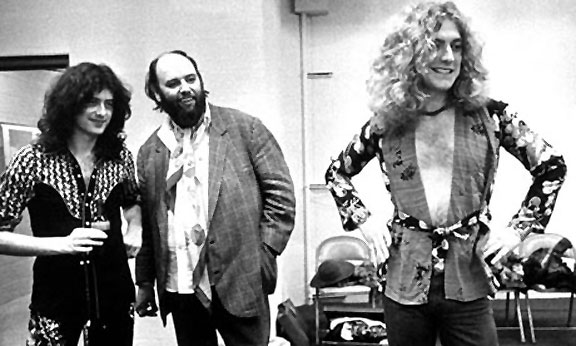The most important member of our team is your manager. They are also the most important agreement you as a musician will sign is an Artist Management Agreement. Managers have never played a more important role in the music industry than they do today, and your manager will likely have a greater impact on your career than any other person on your team (besides Kurt Dahl).
Why? Because they are involved in every single aspect of your career, from touring to releasing records to publishing. Your manager is the person who coordinates things between your record label, publicist, booking agent, publisher, and promoters. They are the quarterback of your music career, and if you are ready to take the next step in your music career, you probably need one.
Here are 5 things to look for in an Artist Management Deal:
1) How Long is the Term?
The shorter, the better for you as an artist. Almost all Artist Management Deal come with an initial term, followed by one or more option periods. The shorter the term, the better for you as an artist. If things are going great, you can always sign another agreement to extend things. But if your manager isn’t living up to your expectations, you’ll be able to cut ties sooner and find a better fit. The late, great David Bowie spent years in litigation (and millions in legal fees) because he fired his first two managers before the term was expired.
2) If You’re Not Making Money, Neither Should They
The Artist Management Deal should allow your Manager to only make a commission on revenues actually earned by you. If you don’t earn any revenues in a given period, neither should they. If your potential manager is asking for a weekly/monthly/yearly fee, that is a definite red flag, for me.
3) How Much is Being Commissioned?
Managers’ commissions are typically between 15 to 20% of an artist’s gross income. Whether it’s 15% or 20% really depends on the level of the band and the bargaining power of each party. I’ve seen some net deals, but they are extremely rare. That being said, I always push for a net commission on merchandise. In other words, you get to deduct the costs of manufacturing, shipping and artwork before the manager takes a commission on merch revenues.
4) What is Being Commissioned?
As important as how much is being commissioned, is what is being commissioned. Certain funds you receive should be excluded from your manager’s commission, such as money received from your label to make music videos or record an album, money received as tour support, etc. If you get FACTOR or Starmaker funding, does the manager get a cut? What about gifts or money from investors? The Artist Management Agreement should be clear on what can and cannot be commissioned.
5) Is there a Sunset Clause?
Related to the length of the term is the length of the post-term, known as the “sunset period”. This is a crucial aspect of any Artist Management Agreement. This is the period following the term where commissions are still payable to the manager, from contracts that he/she negotiated during the term. As with the term, the shorter the better, and the sunset commissions should be declining over time, hence the term “sunset”. I’ve seen deals where the sunset period never ends, and that’s a serious red flag. The sun should always set.
A bonus point: don’t take legal advice from the manager’s lawyer. Ever. This might seem obvious but it happens more often than you’d think and would be totally unacceptable anywhere else besides the music industry. If your manager doesn’t want you to obtain legal advice on the contract, that is a major red flag.
Final thought: the most important thing to consider before working with a manager is, what does your gut instinct say about the person? That’s as significant as any legal clause and is where you should begin. All the negotiating in the world won’t leave you with someone you enjoy working with on a daily basis. Once that box has been checked, take the contract to an experienced entertainment lawyer, and create a deal that opens rather than closes doors for you.








17 Responses
Hi there,
I am looking to manage an unknown artist as a side gig until it becomes a bigger opportunity. I have had little artist management experience but I have a lot of important contacts & currently work at a record label. I have managed multiple music video sets & have managed a small school tour for another artist.
Do you think it’s best to get a contract in place before going all in with this artists by introducing him to my contacts, getting him studio time, etc, etc?
What concerns me is the artist meeting my contacts then deciding to leave my managementto pursue someone more well established. (hopefully won’t happen but I like to prepare for the worst)
Thank you,
Ava
I think it makes sense to put a Management Agreement together. It could start with a one year trial period or something, but if you’re investing time and money and utilizing your contacts, maybe a trial period isn’t even necessary. I think you’ll know when that time comes, when you’re investing a lot and acting like a manager, and it’s time to put something in writing. Perhaps that time is already here.
Kurt Dahl
Entertainment Lawyer
Hi there I want to know how to pay my artist and do I also pay the manager or the artist pays the manger
I’m not clear – are you manager or ?
Kurt Dahl
Entertainment Lawyer
Hello Kurt
May I ask you one question?
I am starting out as a manager, but I’ve been a pro musician, FOH tech and tour manager for many years. I have two bands very interested in signing with me, but they are both a little unhappy about relinquishing a percentage of GROSS. I’ve explained that I will be working full time for them, without any chance of a real payout for perhaps 2-4 years.
Are they right to demand that I take 15% of net, or is there something I can tell them to make them happy about paying 15% of gross?
Thank you for considering a reply to this question.
Hi Steve,
While I’ve seen some NET management deals, they are few and far between and the industry norm is GROSS. Otherwise, you would have no control over the expenses being incurred by the artist (five star hotels, first class flights, etc) and they could leave you with a NET of very little. Merchandise is an exception, and often merch proceeds are NET after the costs of manufacturing. This is not always the case but often, which as a touring artist I find fair. Merch puts food in bellies and gas in the tank.
Kurt Dahl
Entertainment Lawyer
Hi Kurt,
Great insight, thanks. A few questions .
What is common practice when it comes to tour revenue? There are certain expenses that are necessary to generate the revenue. Like production, travel and accommodation. Furthermore what is considered gross when it comes to booking agent fees ? is the manager commison based on the before or after agent cut?
Have you ever herd of a sunrise clause? where the manager takes cut from revenue generated before signing with an artist? And what about commission in perpetuity on the songs the manager worked on in the contact period?
Thanks in advance
Magnus
I’ve never heard of a sunrise! But often a manager will commission on an artist’s entire catalog (i.e. songs written and released before their involvement). So I guess that is similar.
I always negotiate against any sort of perpetuity sunset.
Managers typically commission on gross, so the agent’s fees aren’t deducted first. Agents and managers commission on gross, typically (though not always).
Kurt Dahl
Entertainment Lawyer
Hello Kurt,
A common contract says an artist manager gets a % on all gross earnings.
1)About merch (t-shirt/cd sold) at the gig, should get the % based on the sold price or is it after the money invested in those merch (sell price minus cost price)?
What about the merch sold online?
2)When touring, should he get his commission based on the ticket price (tickets sold), or based on the net revenue (concert gross minus venue location + bus/hotels + promotion costs)
3)Regarding the stream, should he get a commission on all revenues coming from Spotify/radio revenues?
Thanks in advance,
Marc
It all depends on the negotiation between the parties and the nature of their relationship and respective bargaining power! But generally, many managers take NET on merch and GROSS on everything else. But then you need to hire an entertainment lawyer to make sure the appropriate exclusions from gross revenue are in there (i.e. if $$ is received from a label for recording, that shouldn’t be considered income. There are usually 15-20 exclusions I insert in every Mgmt Agreement. I of course can’t give away all my knowledge on here though 🙂
Kurt Dahl
Entertainment Lawyer
This post is useful for all the new set up businesses.
Thank you random spam-bot. I enjoy helping all new set up businesses.
Kurt Dahl
Entertainment Lawyer
Too nice
Hey Kurt!!
Love the article, as a new up and coming indie band “Fire Point” based in Dublin, Ireland. We are doing a lot of research on this topic.
I also was wondering what date this article was published on as I would like to cite it in an essay for college! Thank you!!!
Hi Connell!
Thanks for the kind words. I would love to visit Dulbin someday. The article was first published in 2012, and I’ve updated it a few times since then.
Thanks! And send me the article when it’s done! Email me. Thanks
Kurt Dahl
Entertainment Lawyer
Hi Kurt – love your site. It’s a great wealth of knowledge. I am looking at CO-managing a few producers with a well-known and high level manager who needs help on the admin and day to day side of things – splitting 20% equally.
We are going to put together a simple co-manage deal memo between the two of us and I would love your take on what that should cover..
I would be happy to help draft the agreement. Email me.
Kurt Dahl
Entertainment Lawyer